Hematology/Oncology Fellowship
Welcome to the Hematology/Oncology Fellowship Program at the University of Texas MD Anderson Cancer Center! Our goal is to develop future leaders in hematology and oncology through comprehensive clinical and research training.
Our fellows benefit from unparalleled opportunities and resources, including a diverse patient population across multiple training sites, expert faculty covering the full spectrum of hematology/oncology, an expansive infrastructure for clinical trials, and exceptional research facilities and support. We are fully committed to their education and professional development and uniquely positioned to facilitate their success in all potential career paths. We have high expectations for our fellows in the clinical and academic arenas, and we encourage them to reach their full potential through individualized mentorship and guidance.
Our three-year, integrated program allows for dual board eligibility in hematology and medical oncology or single board eligibility in medical oncology. The first 12-18 months of fellowship training are devoted to clinical rotations. The remaining 18-24 months provide protected time and flexibility to pursue clinical, translational, and laboratory research and other academic opportunities (e.g. quality improvement training, a Master’s degree, and professional development workshops).
All interviews for the 2025–2026 application season will be conducted in person. Each interview day will include a pre-interview social the evening prior, followed by a full day of interviews. Learn more about our process.
Interview Information
All interviews for the 2025–2026 application season will be conducted in person. Each interview day will include a pre-interview social the evening prior, followed by a full day of interviews.
A Letter from our Program Director

Welcome to the Hematology/Oncology Fellowship Program at MD Anderson Cancer Center. We are excited to introduce you to one of the nation’s premier fellowship training programs.
MD Anderson’s Hematology/Oncology Fellowship Program focuses on educating fellows not only in the pathophysiology and standard therapies of hematologic and oncologic diseases but also in the novel, groundbreaking treatments of cancer and hematologic conditions, many of which are pioneered at our institution. As a destination cancer center, MD Anderson offers our fellows extraordinary exposure to a vast patient population with both common and rare diseases.
MD Anderson Cancer Center is part of the Texas Medical Center, the world’s largest medical complex. To facilitate the most innovative and comprehensive learning environment for our fellows, we capitalize on our location by offering clinical opportunities at multiple facilities including Methodist Hospital, Ben Taub Hospital, and Lyndon B. Johnson Hospital.
Mentorship is essential to ensuring successful career development for our fellows, and this process begins immediately upon matriculation to our program. The access that our fellows have to the thought leaders in our fields is unparalleled, and the dedication of our faculty to fellowship education is unmatched. Our fellows are trained by world-renowned faculty who hold education as a tenet of academic medicine. Furthermore, our program enjoys immense support from the institution, and the success of our program remains a cornerstone of the mission of MD Anderson.
Each year, the fellows that join MD Anderson are among the brightest and most innovative candidates seeking a fellowship position, and the program fosters a collaborative environment with ample protected time for scholarly research and the pursuit of innovative projects. Training at our program prepares candidates for the nation’s most competitive faculty positions as physician-scientists, clinical investigators, clinical educators, and master clinicians, and we pride ourselves on the significant contributions that our alumni continue to make in our fields. As an alumnus of this program, I am confident that my own training at MD Anderson was the most consequential element of my professional development, and I am proud to lead our fellows through this defining component of their education.
I encourage you to explore our website and discover more about what makes our fellowship program exceptional. Thank you for considering MD Anderson for your fellowship training, and we look forward to the potential of having you as part of our esteemed training program.
Meet our Current Fellows
Fellows in the Spotlight

First Year Fellows: Laura Amin Burns, M.D, Neha Agrawal, M.D., and Nirosha Perera, M.D.

Third-Year fellows, Afsaneh Amouzegar,, M.D., Kelsey Pan, M.D., Marija Sullivan, M.D., and Cindy Jiang, M.D.

Third Year Fellows: Paulino Tallón de Lara, M.D., Ph.D., Jenny Xiang, M.D., Ryan Denu, M.D., Ph.D., Christen Dillard, M.D., and Marija Sullivan, M.D.

First-Year Fellows and Hematology Oncology Faculty

Second-Year Fellows: Eduardo Edelman Saul, M.D., Nazli Dizman, M.D., and Michael LaPelusa, M.D.

First-Year Fellows, Tony Zhuang, M.D., and Rahul Shah, M.D., Second-Year Fellow, Jennifer Marvin-Peek, M.D.

Tara Davidson, M.D., Third-Year Fellow
First-Year Fellows
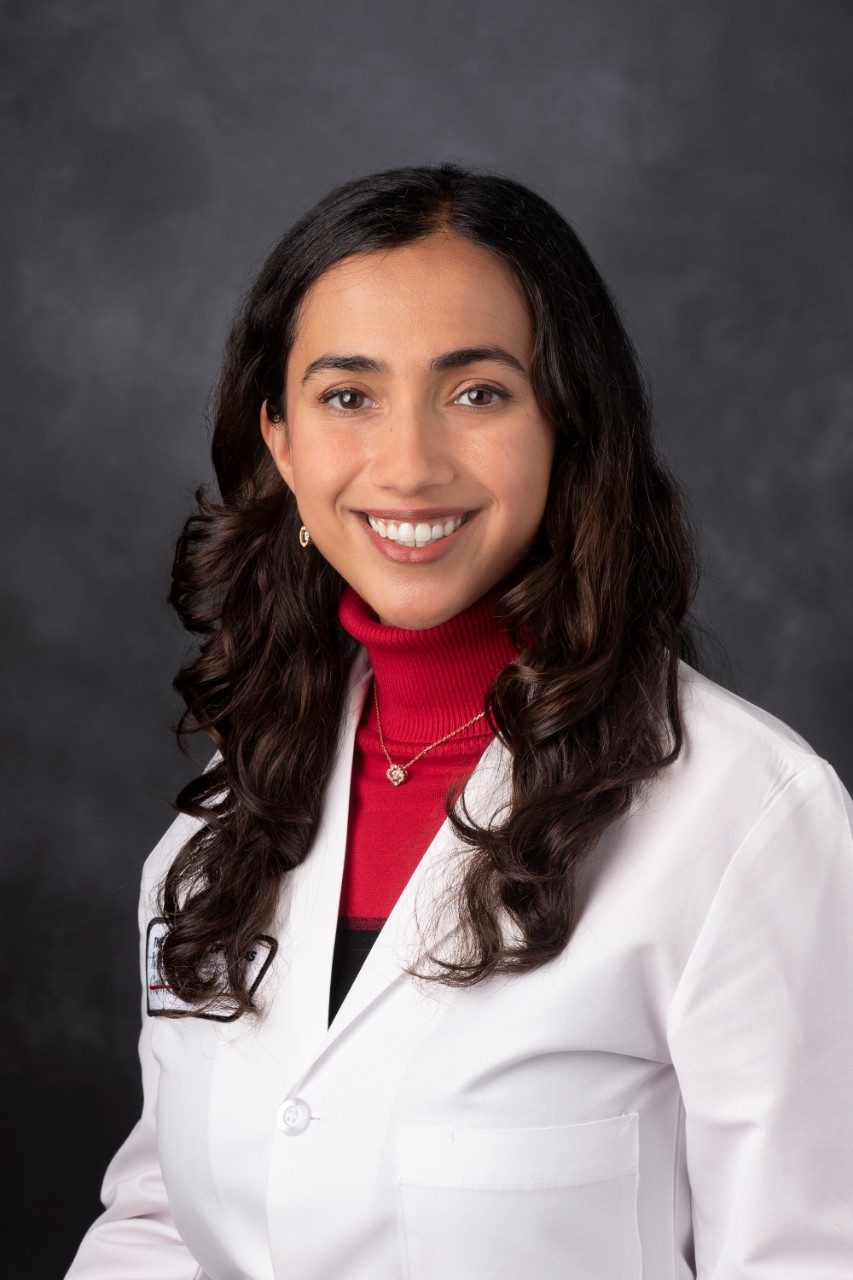
Neha Agrawal, M.D.
Medical School: University of Nevada, Reno
Residency: Oregon Health & Science University

Leticia Campoverde, M.D.
Medical School: Universidad San Francisco de Quito
Residency: University of Miami
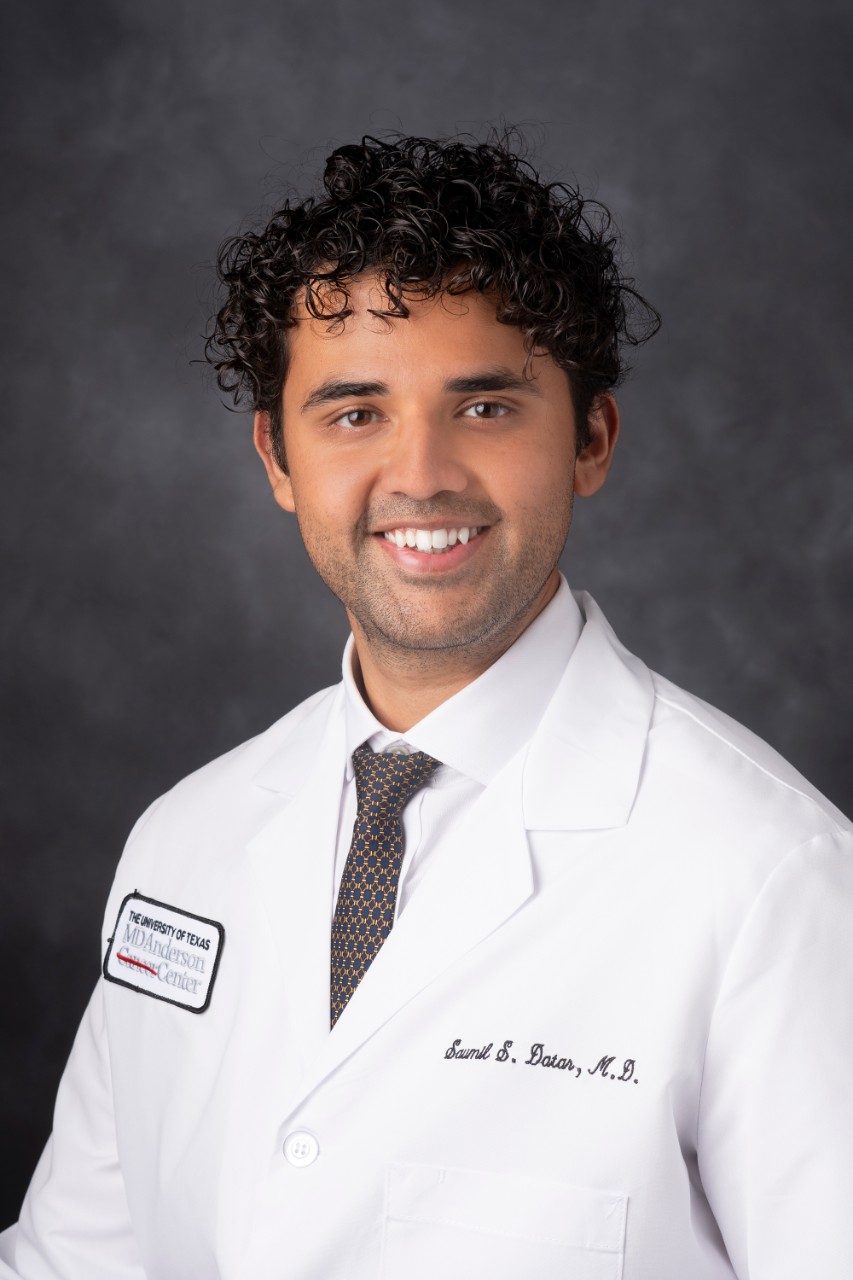
Saumil Datar, M.D.
Medical School: McGovern Medical School of UT Health
Residency: McGovern Medical School of UT Health

Mir Lim, M.D.
Medical School: Boston University
Residency: UT Southwestern Medical Center
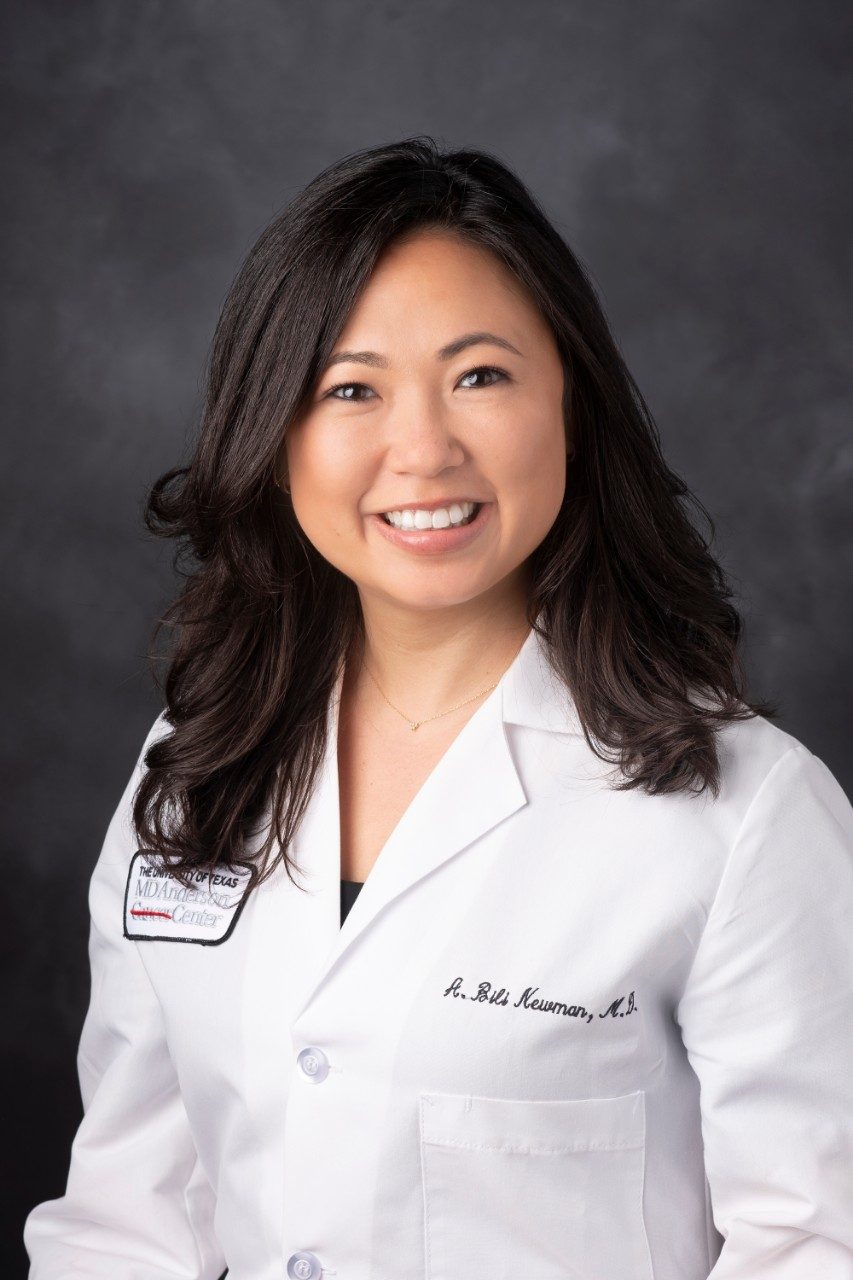
Alexandra Newman, M.D.
Medical School: McGovern Medical School at UTHealth
Residency: Brigham and Women's Hospital

Nirosha Perera, M.D.
Medical School: Stanford University
Residency: Mayo Clinic
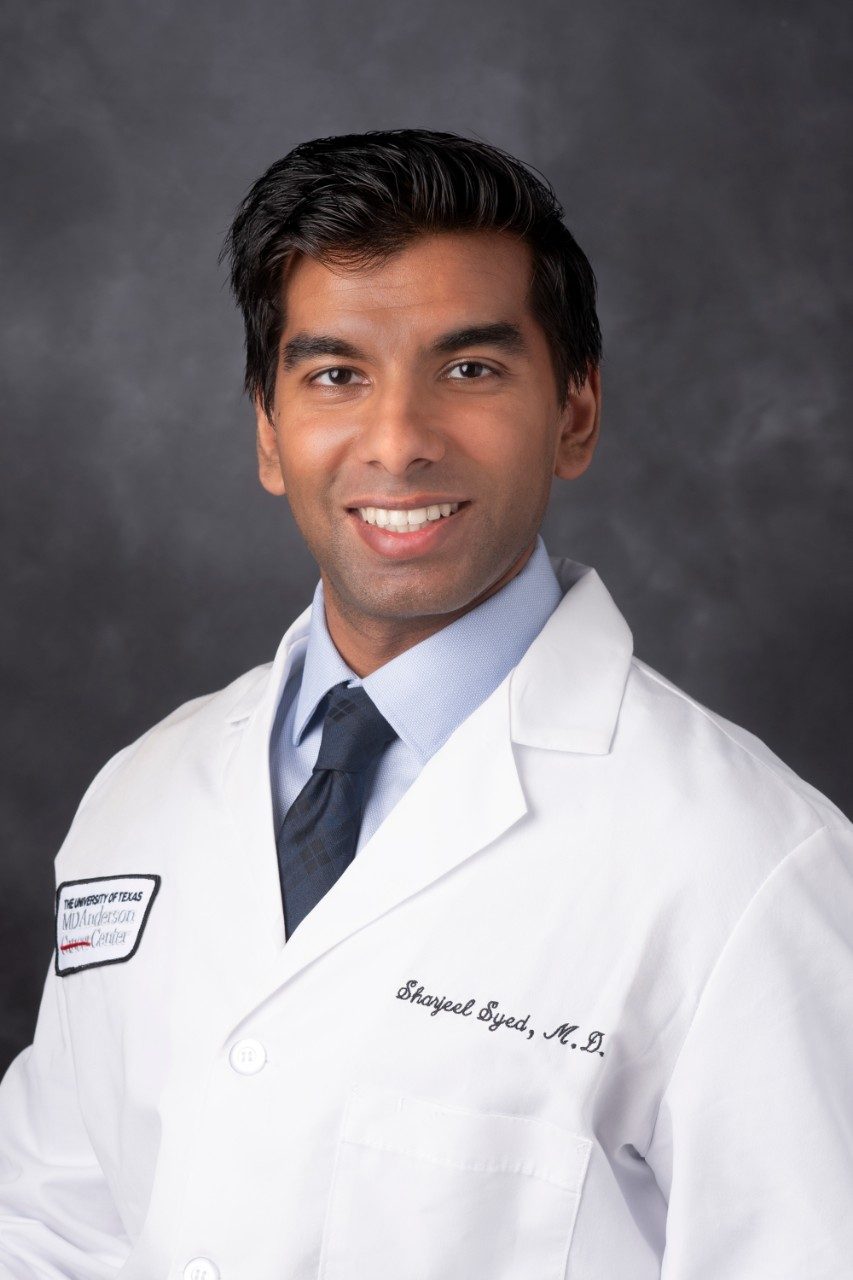
Sharjeel Syed, M.D.
Medical School: Standford University
Residency: University of Chicago

Tony Zhuang, M.D.
Medical School: University of Tennessee
Residency: Emory University
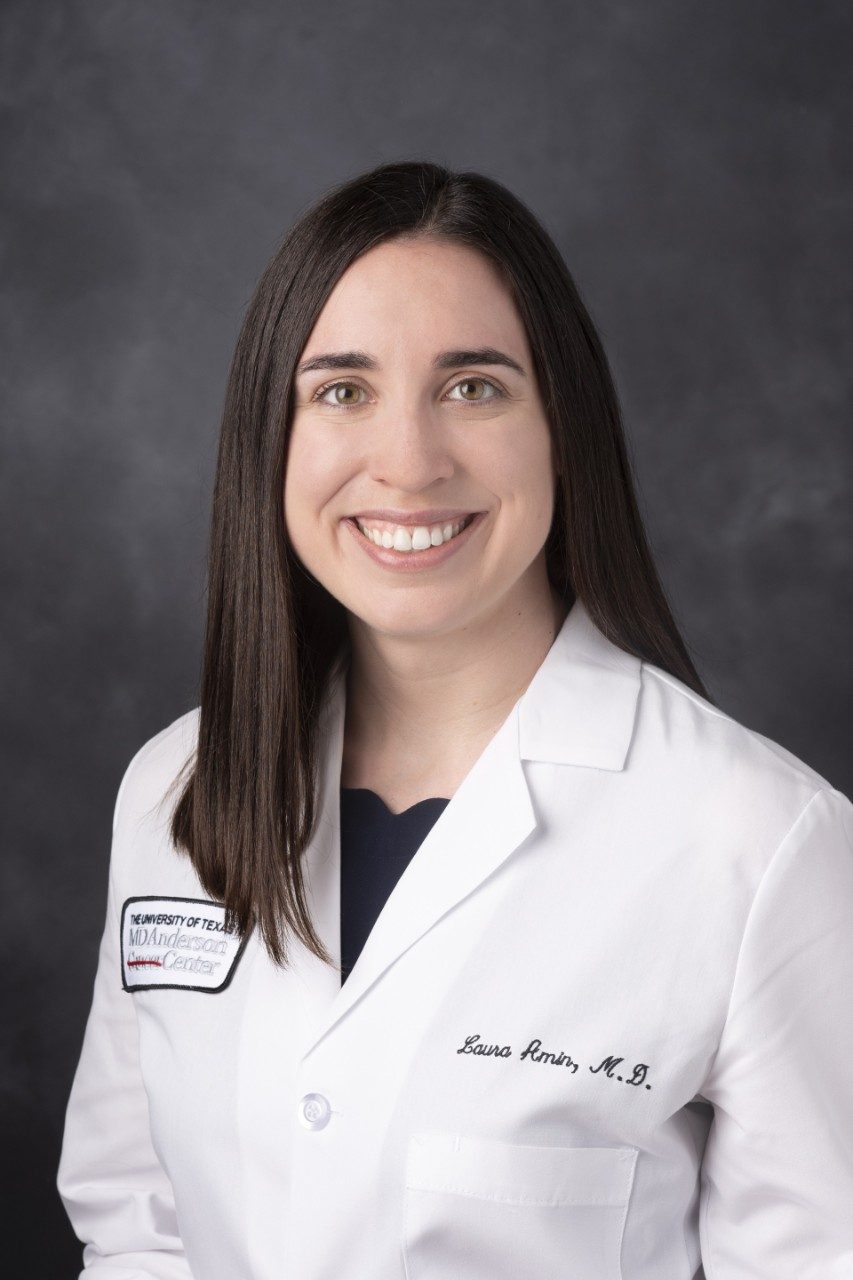
Laura Amin, M.D.
Medical School: Loyola University
Residency: Boston University
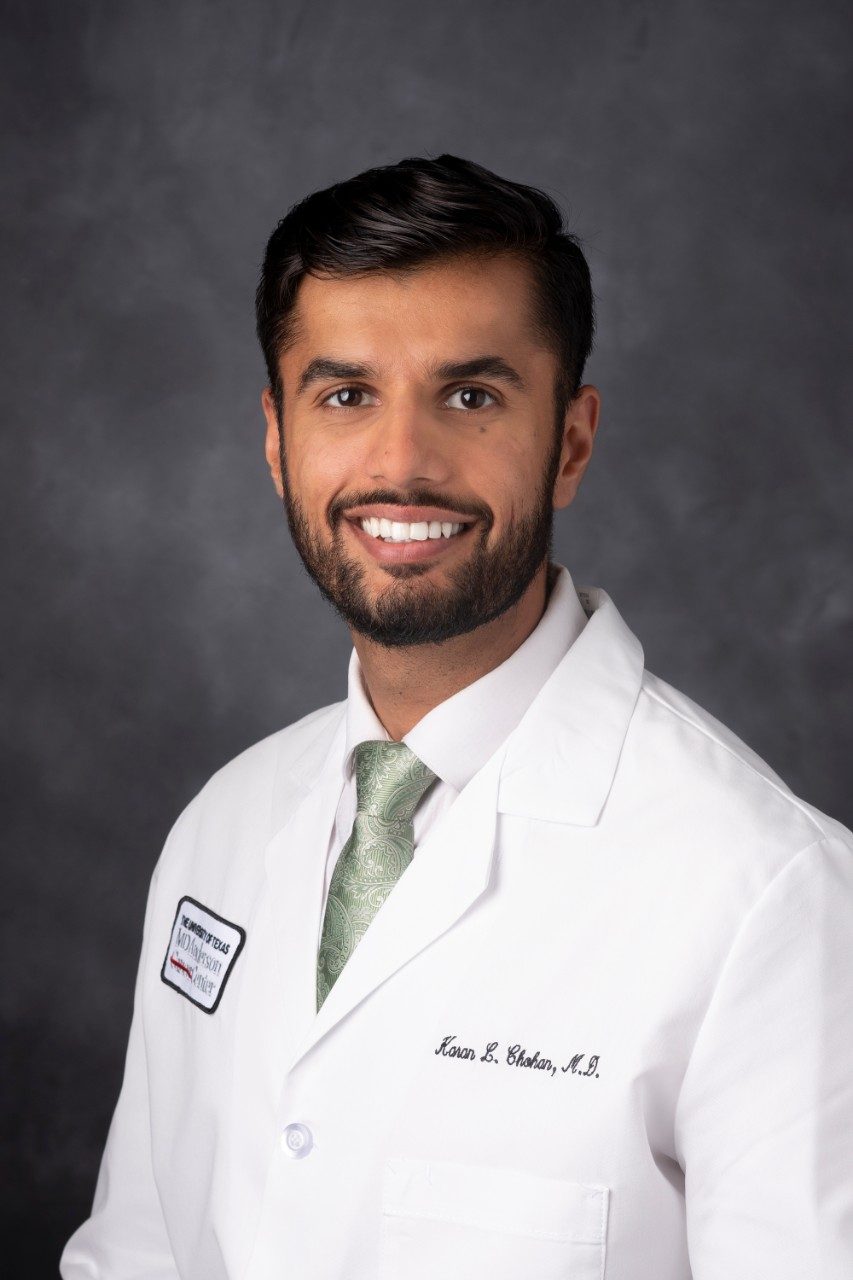
Karan Chohan, M.D.
Medical School: University of Toronto
Residency: Mayo Clinic

Nikhil Grandhi, M.D.
Medical School: Drexel University
Residency: Washington University in St. Louis
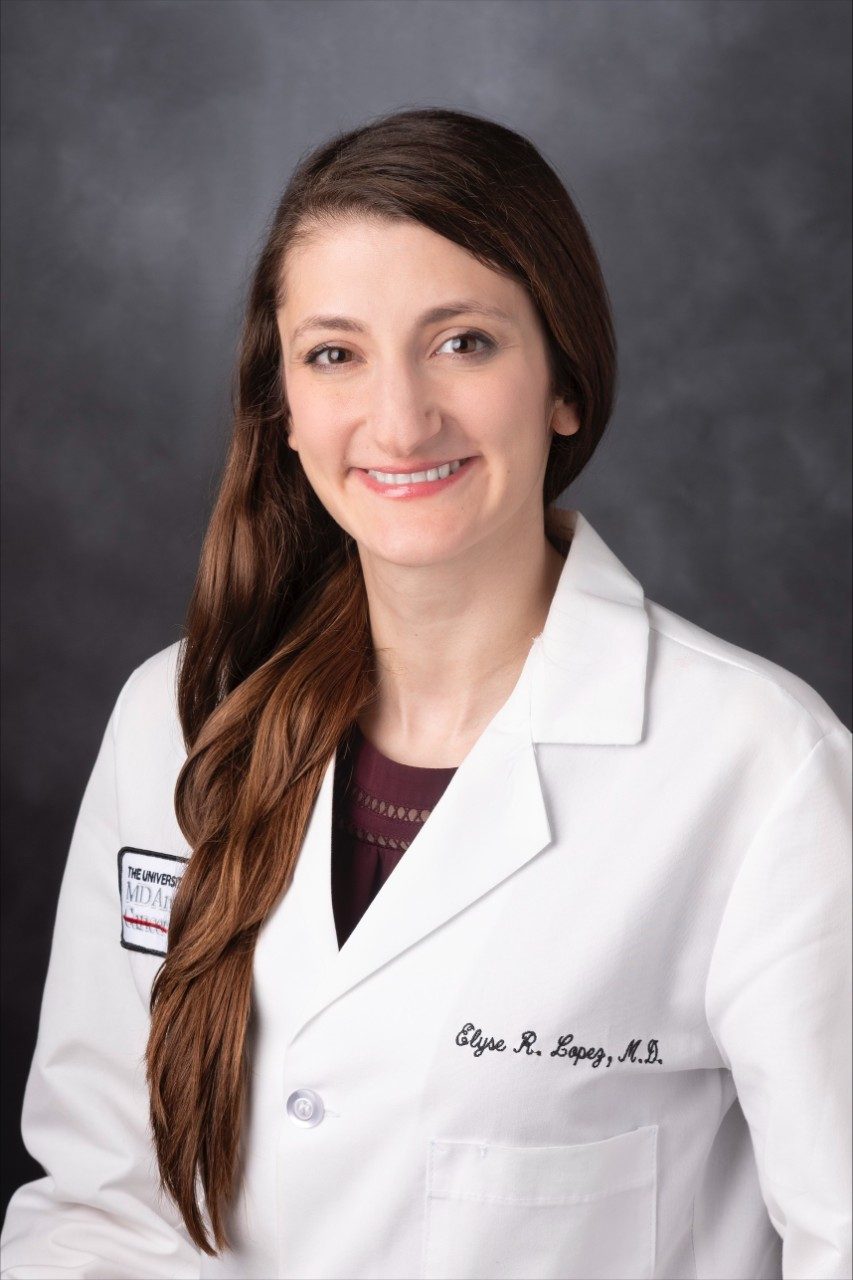
Elyse Lopez, M.D.
Medical School: Baylor College of Medicine
Residency: Baylor College of Medicine

Mitchell Parma, M.D.
Medical School: UT Health San Antonio
Residency: John Hopkins University

Rahul Shah, M.D.
Medical School: University of Texas Medical Branch
Residency: Vanderbilt University

Charan Vegivinti, M.D.
Medical School: Kasturba Medical College, Manipal
Residency: Albert Einstein College of Medicine/Jacobi Medical Center
Second-Year Fellows

Neha Akkad, M.D.
Medical School: UCLA
Residency: Washington University in St. Louis

Nazli Dizman, M.D.
Medical School: Ege Universitesi Tip Fakultesi
Residency: Yale University
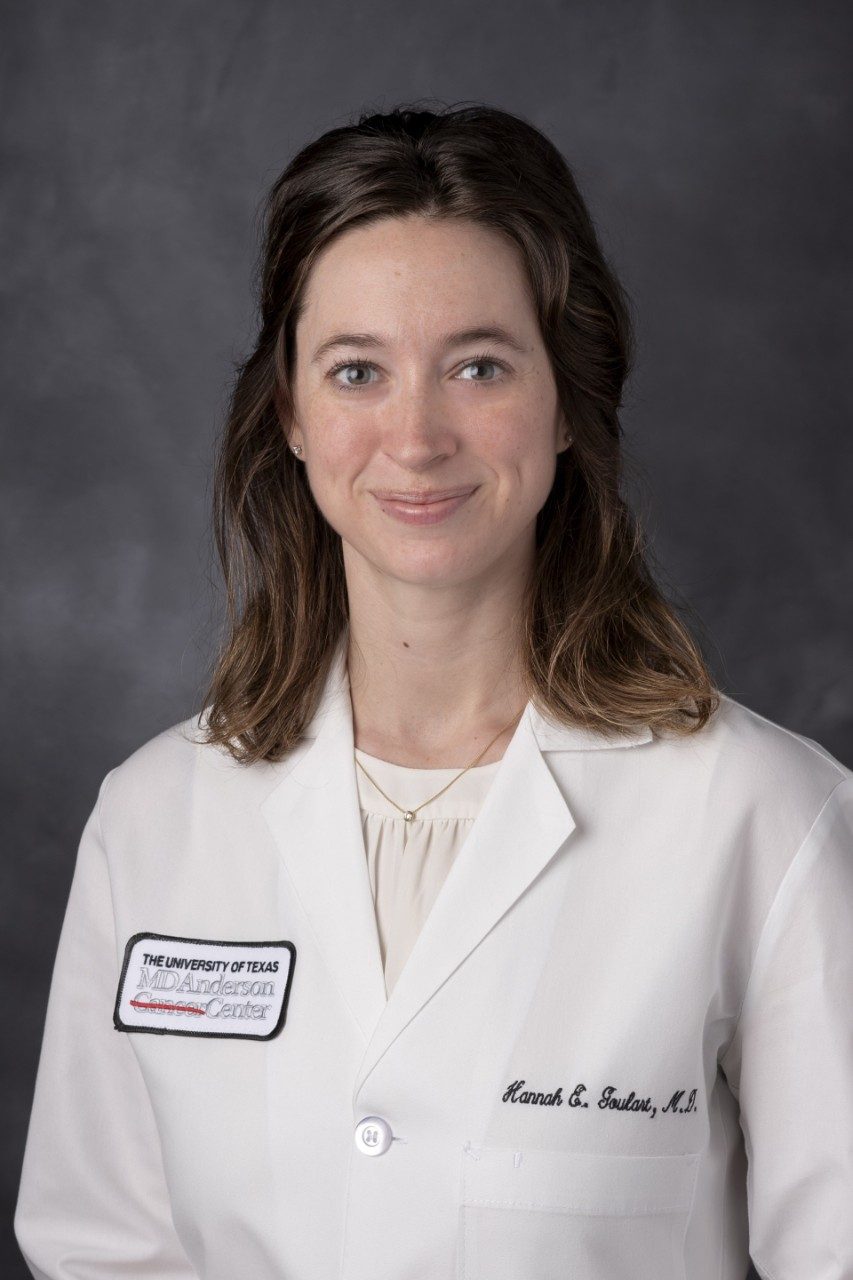
Hannah Goulart, M.D.
Medical School: George Washington University
Residency: Icahn School of Medicine at Mount Sinai
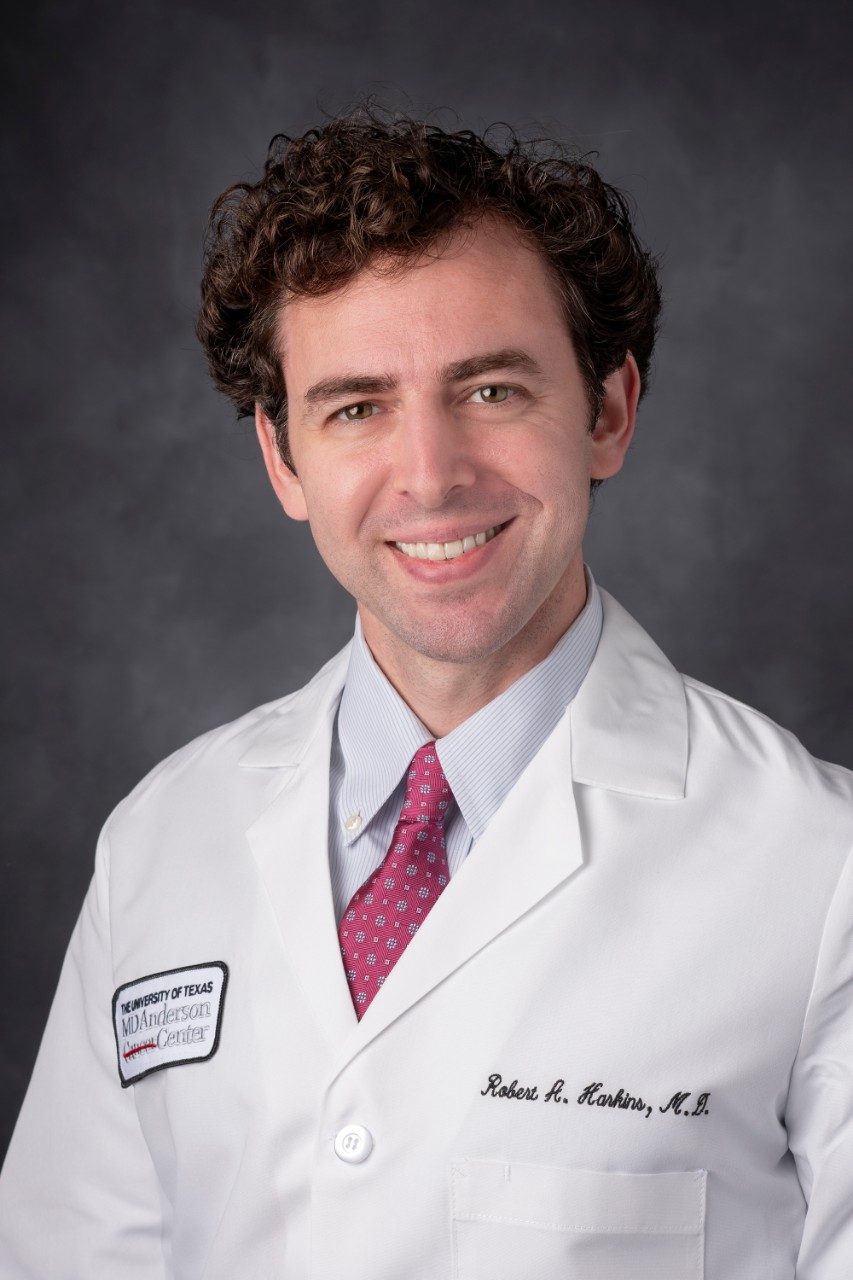
Andrew Harkins, M.D., M.S.
Medical School: Emory University
Residency: Emory University

Michael LaPelusa, M.D.
Medical School: University of Texas Rio Grande Valley
Residency: Vanderbilt University

Daniel Nguyen, M.D., Ph.D.
Medical School: Tulane University
Residency: McGovern Medical School at UT Health
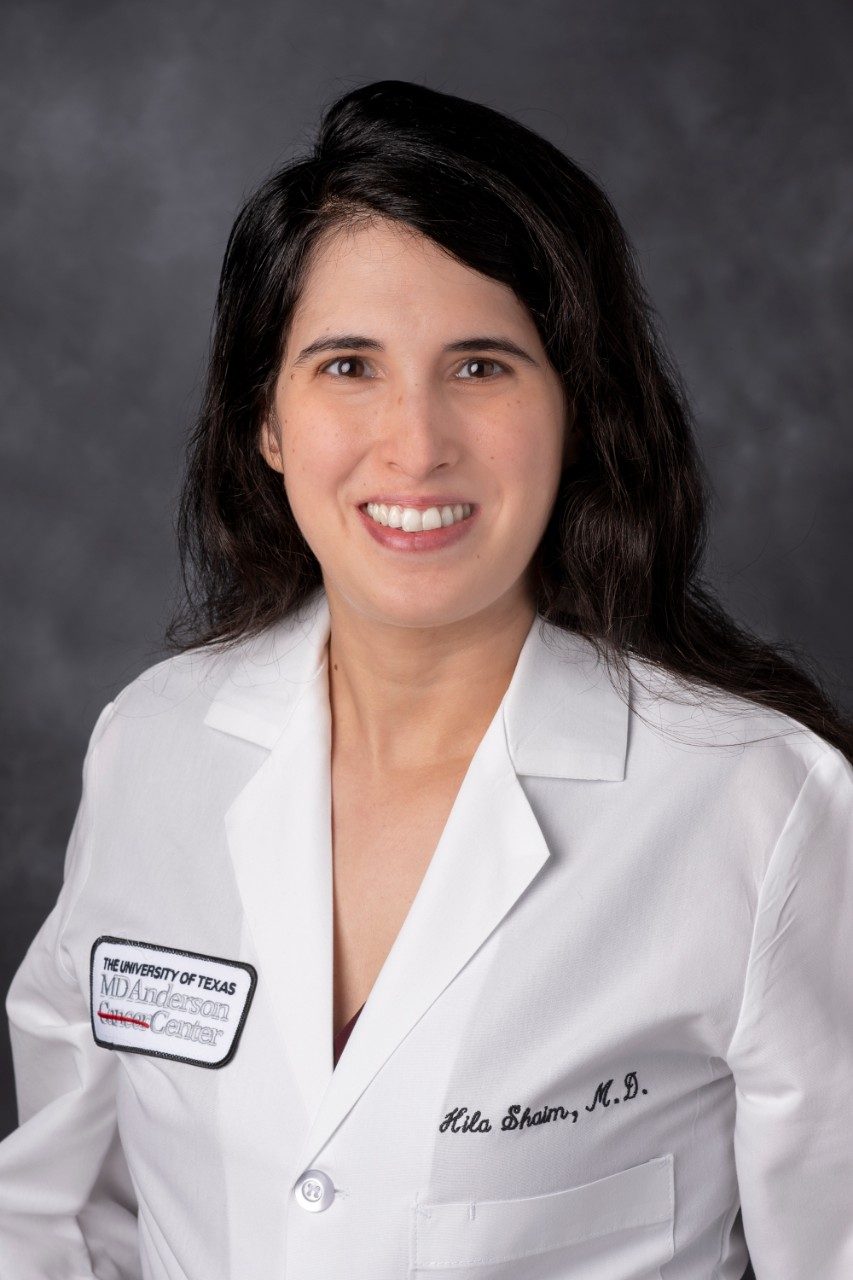
Hila Shaim, M.D., Ph.D.
Medical School: Ruprecht-Karls-Universitat Heidelberg
Residency: University of Texas Medical Branch

Sankalp Arora, M.B.B.S
Medical School: Seth G.S. Medical College
Residency: University of Alabama at Birmingham
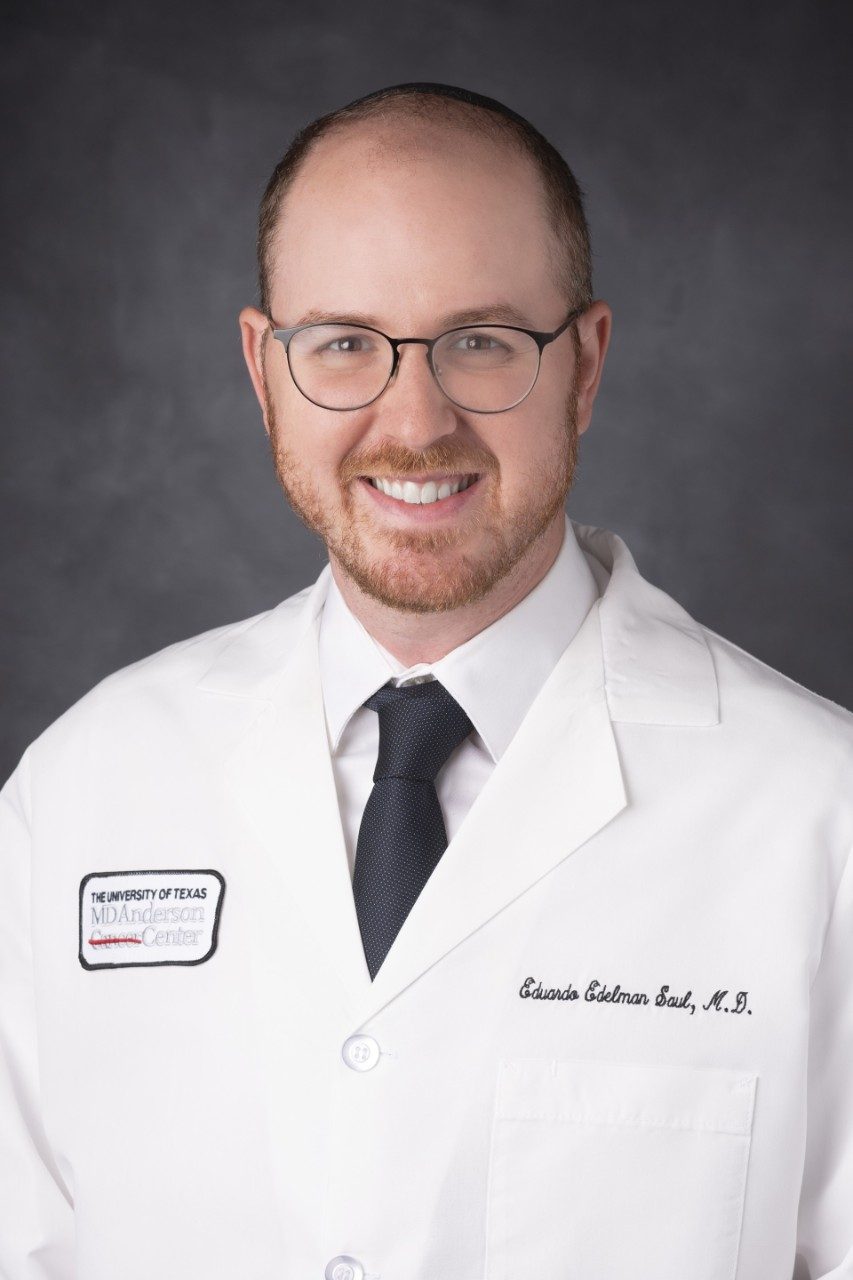
Eduardo Edelman Saul, M.D.
Medical School: Universidade Federal do Rio de Janeiro
Residency: University of Miami
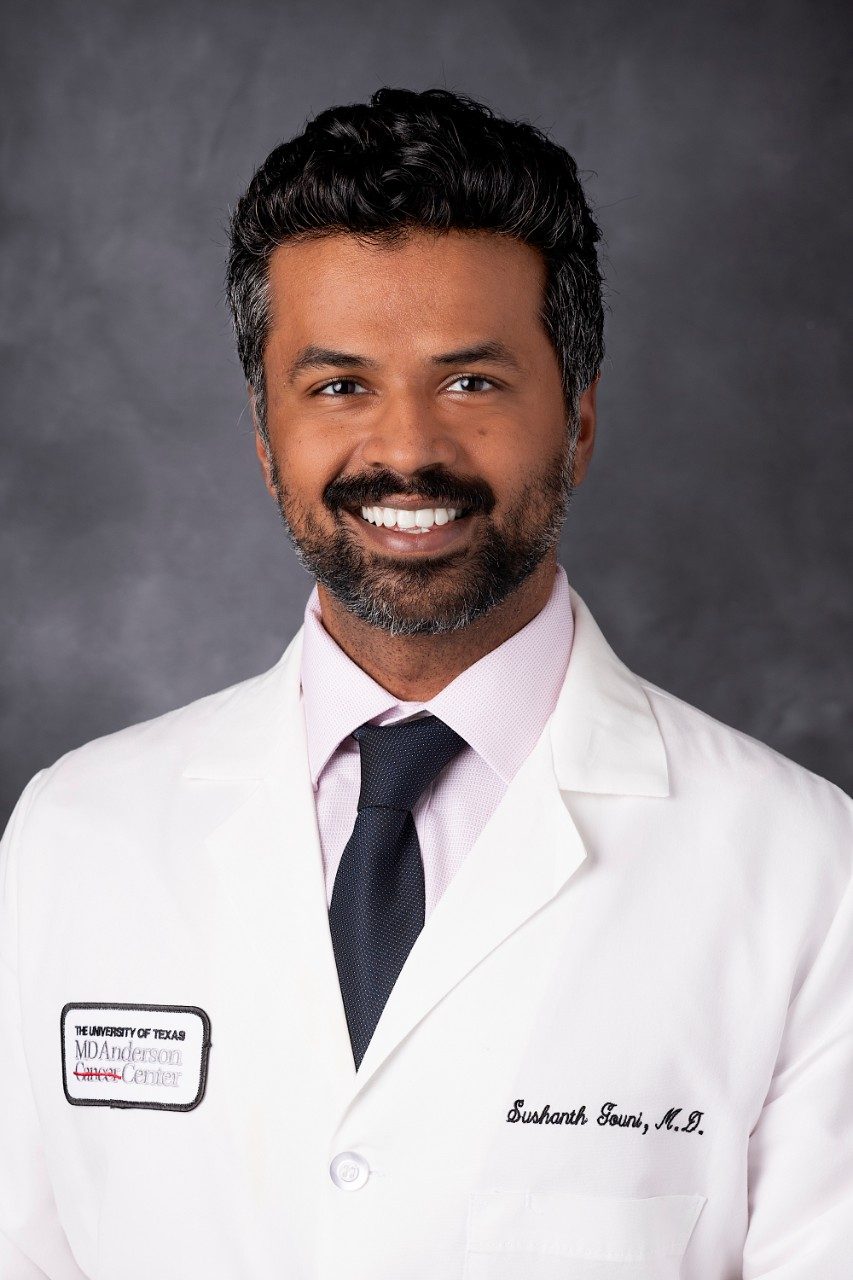
Sushanth Gouni, M.D.
Medical School: McGovern Medical School at UT Health
Residency: McGovern Medical School at UT Health

Inimfon Jackson, MBBCh, Ph.D.
Medical School: University of Calabar
Residency: Einstein Medical Center Philadelphia

Jennifer Marvin-Peek, M.D.
Medical School: Vanderbilt University
Residency: Vanderbilt University

Nakul Shah, M.D.
Medical School: Washington University in St. Louis
Residency: Washington University in St. Louis
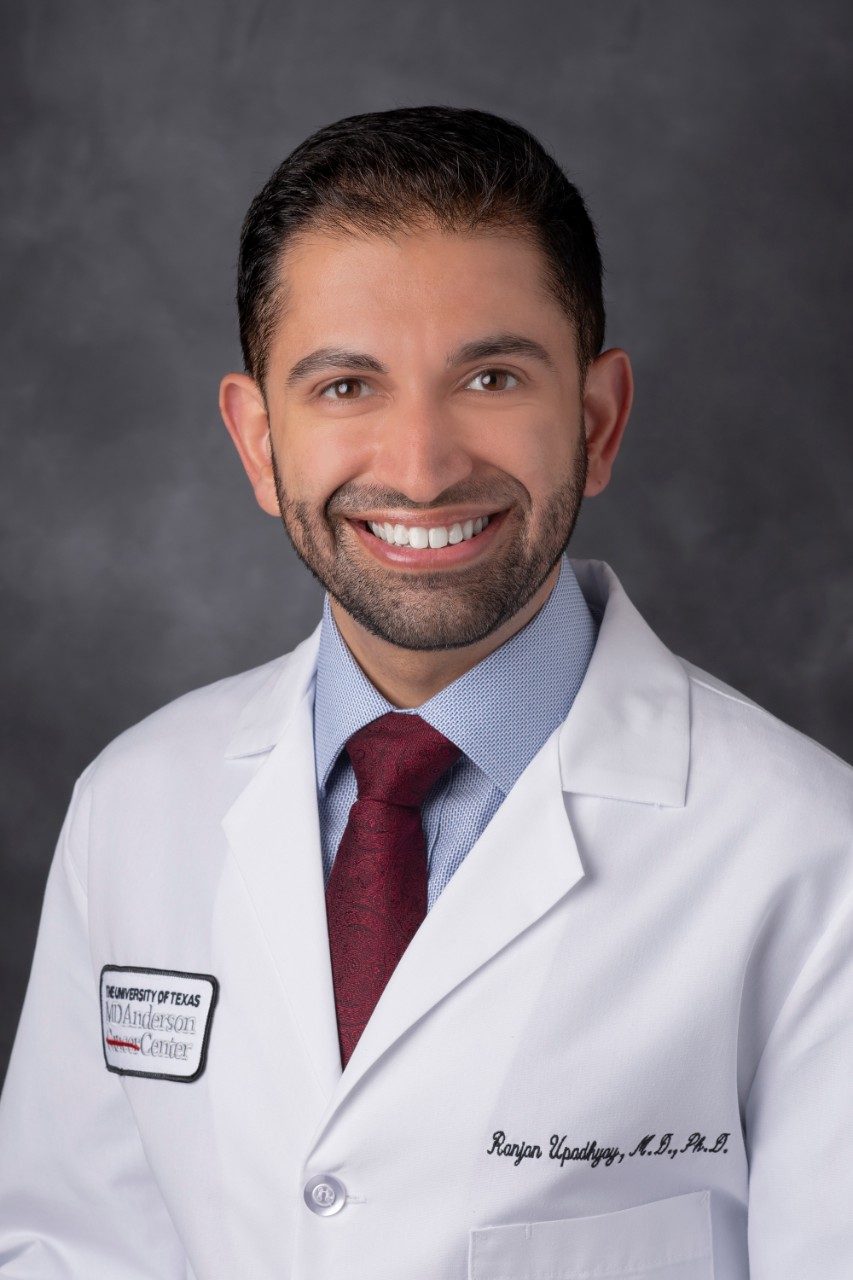
Ranjan Upadhyay, M.D., Ph.D.
Medical School: Icahn School of Medicine at Mount Sinai
Residency: Icahn School of Medicine at Mount Sinai
Third-Year Fellows

Afsaneh Amouzegar, M.D.
Medical School: Tehran University
Residency: University of Pittsburgh
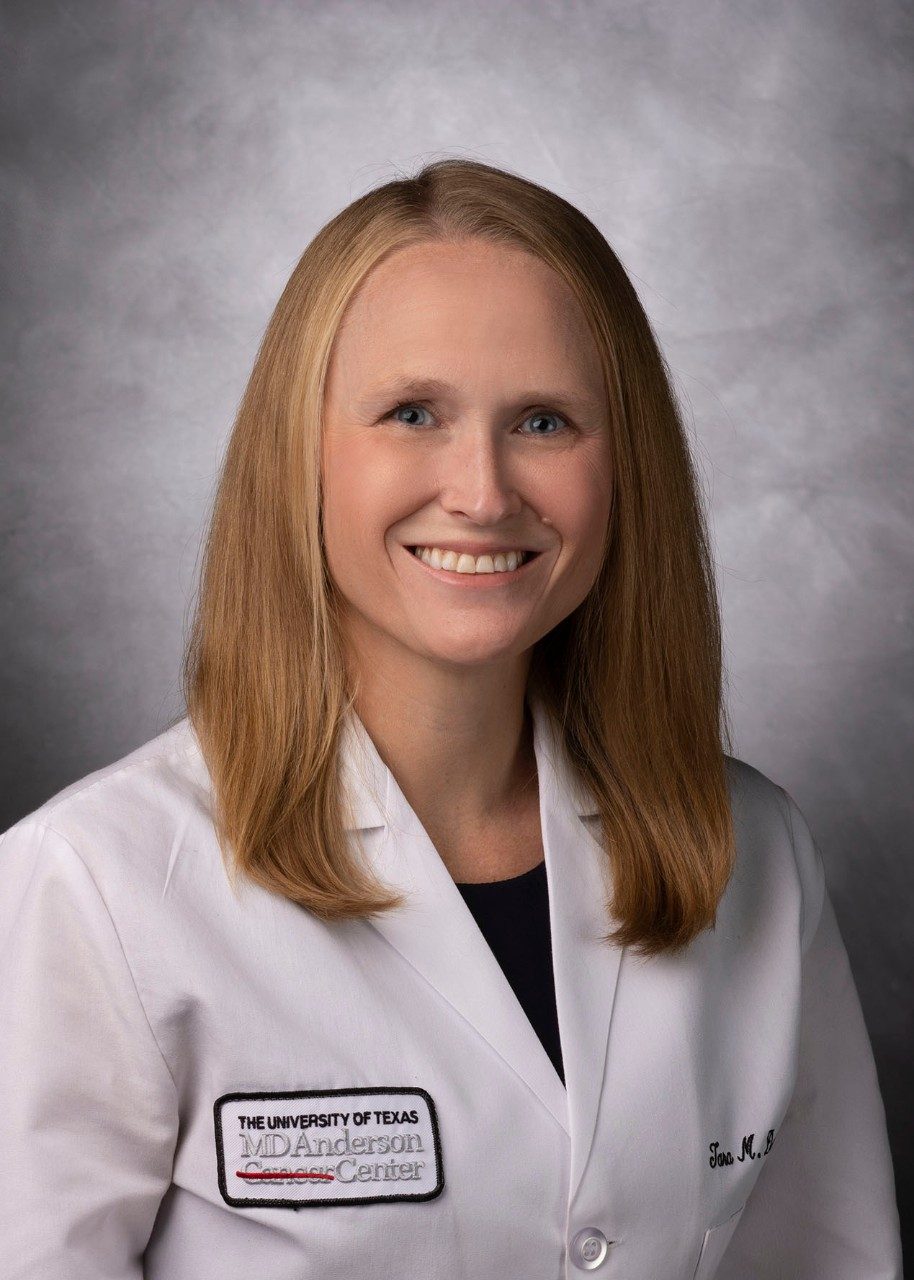
Tara Davidson, M.D.
Medical School: University of Washington
Residency: Mayo Clinic
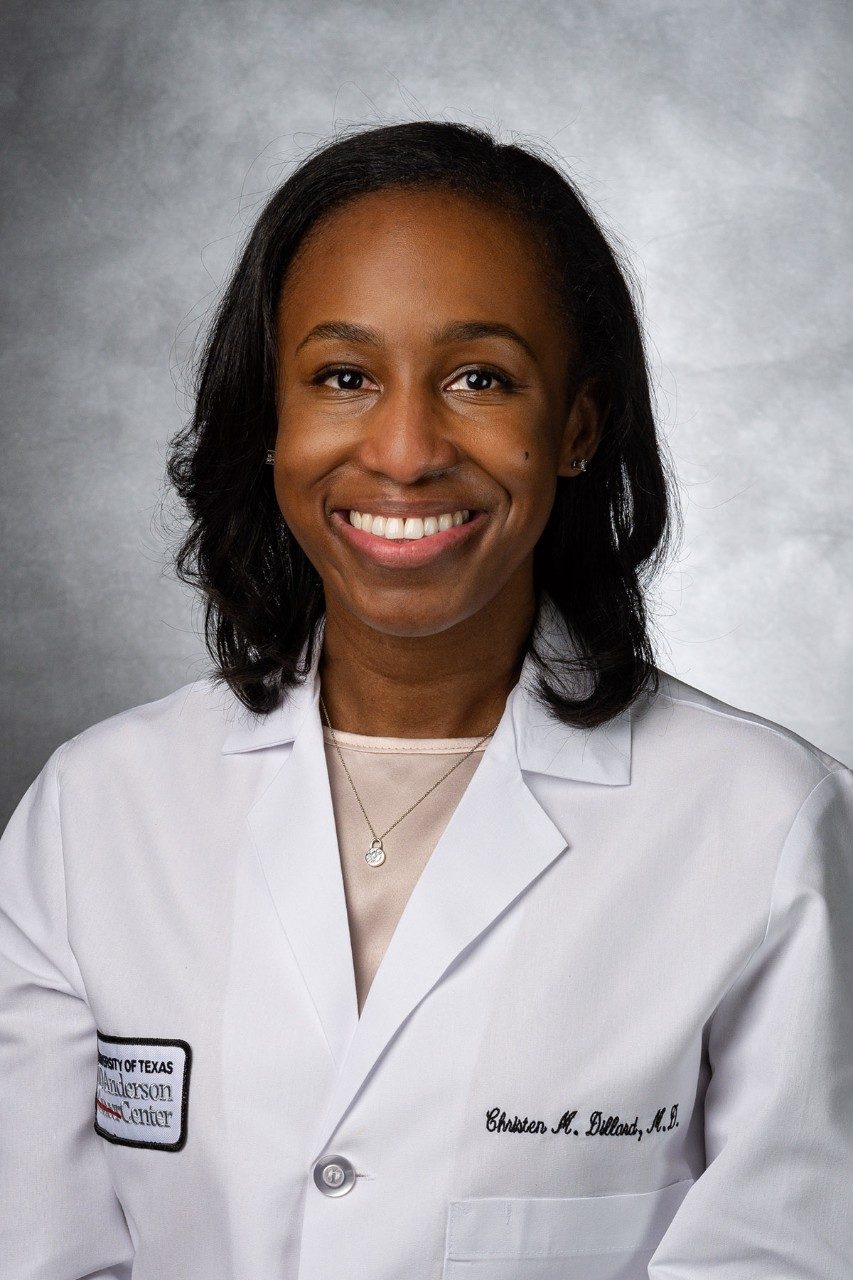
Christen Dillard, M.D.
Medical School: University of California San Francisco
Residency: McGovern Medical School at UT Health

Kunhwa Kim, M.D., M.P.H.
Medical School: Seoul National University
Residency: Einstein Medical Center
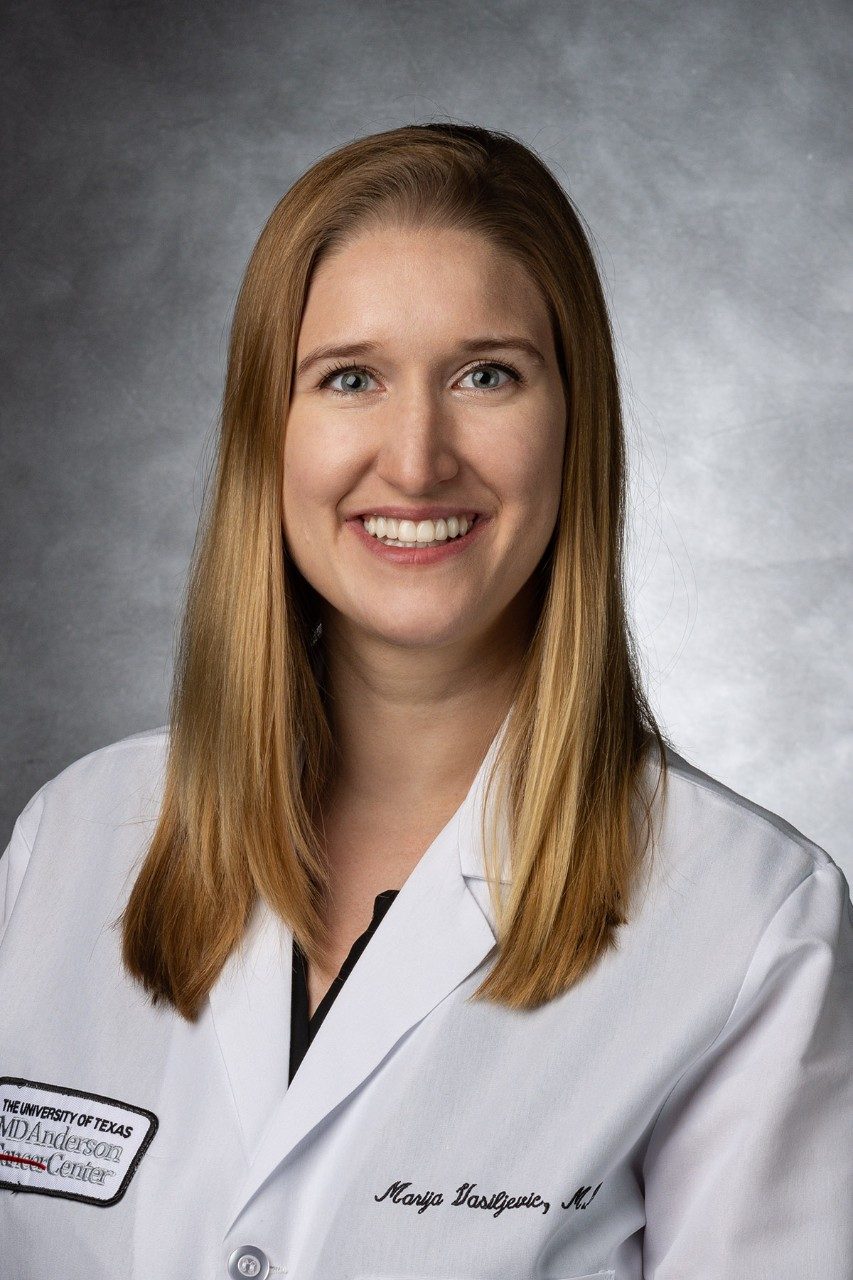
Marija Sullivan, M.D.
Medical School: Johns Hopkins University
Residency: Johns Hopkins University
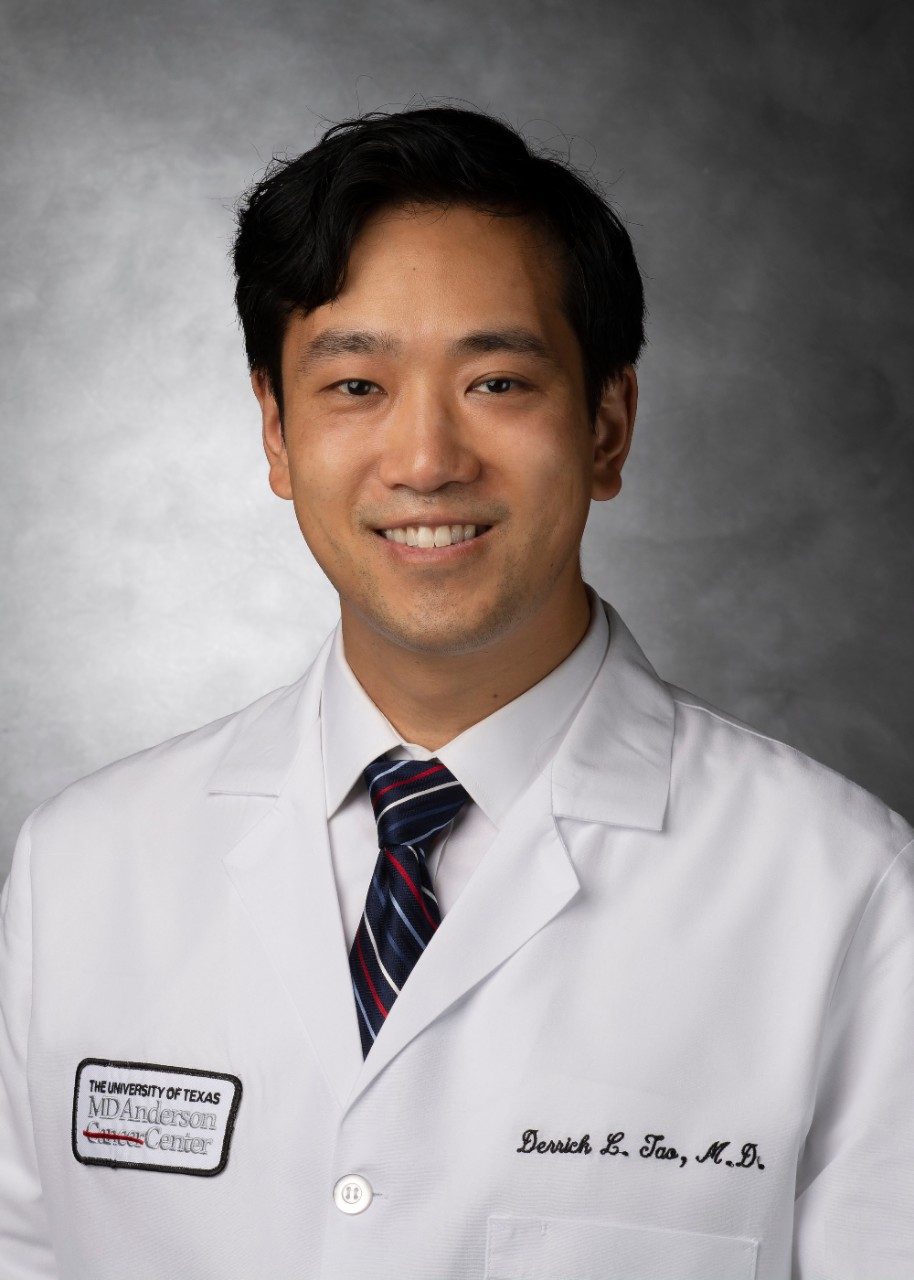
Derrick Tao, M.D.
Medical School: Oregon Health & Science University
Residency: Oregon Health & Science University

Jenny Xiang, M.D.
Medical School: University of Maryland
Residency: Yale University

Erez Baruch, M.D., Ph.D.
Medical School: Sackler School of Medicine
Residency: McGovern Medical School at UT Health

Ryan Denu, M.D., Ph.D.
Medical School: University of Wisconsin
Residency: Brigham & Women's Hospital

Cindy Jiang, M.D.
Medical School: University of Missouri - Kansas City
Residency: University of Michigan
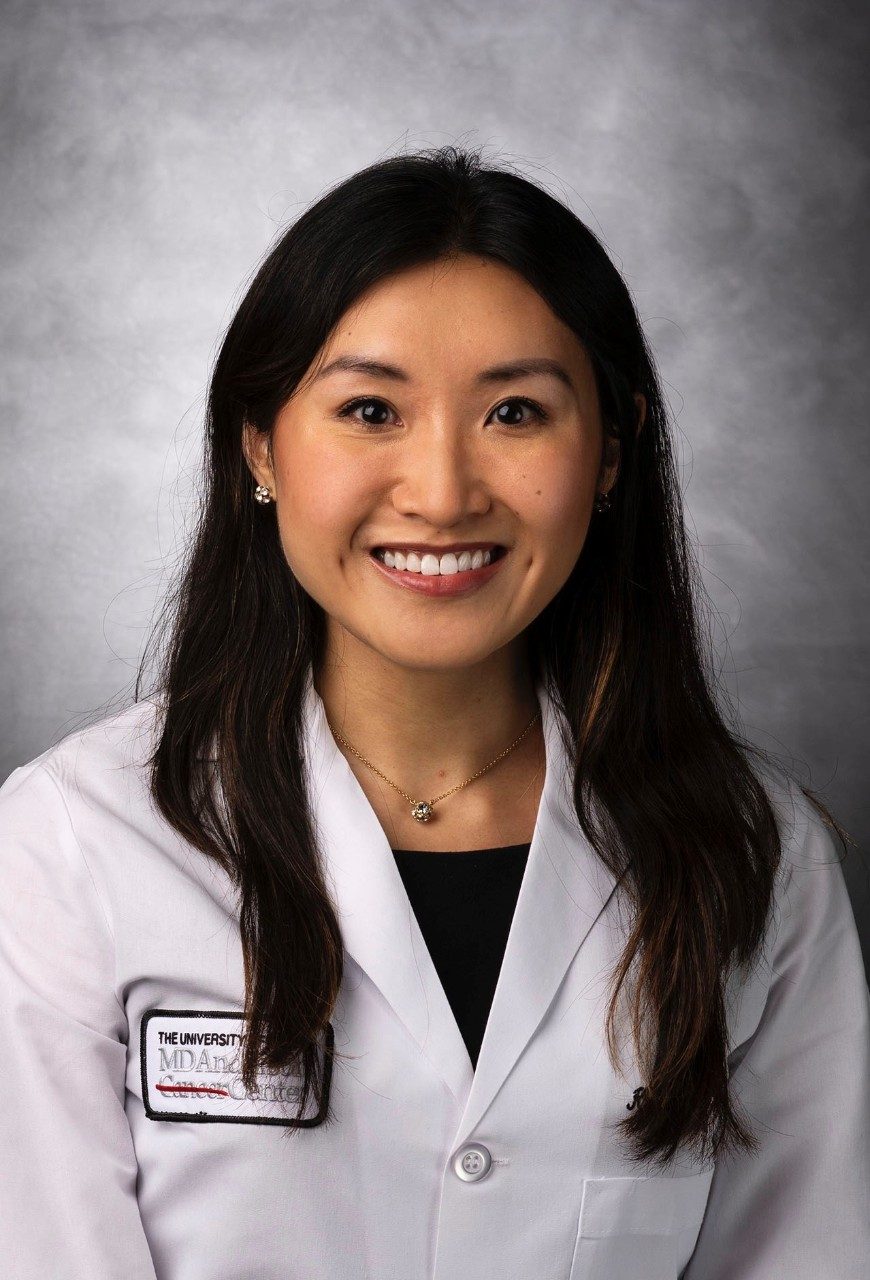
Kelsey Pan, M.D., M.P.H.
Medical School: University of Miami
Residency: University of Florida
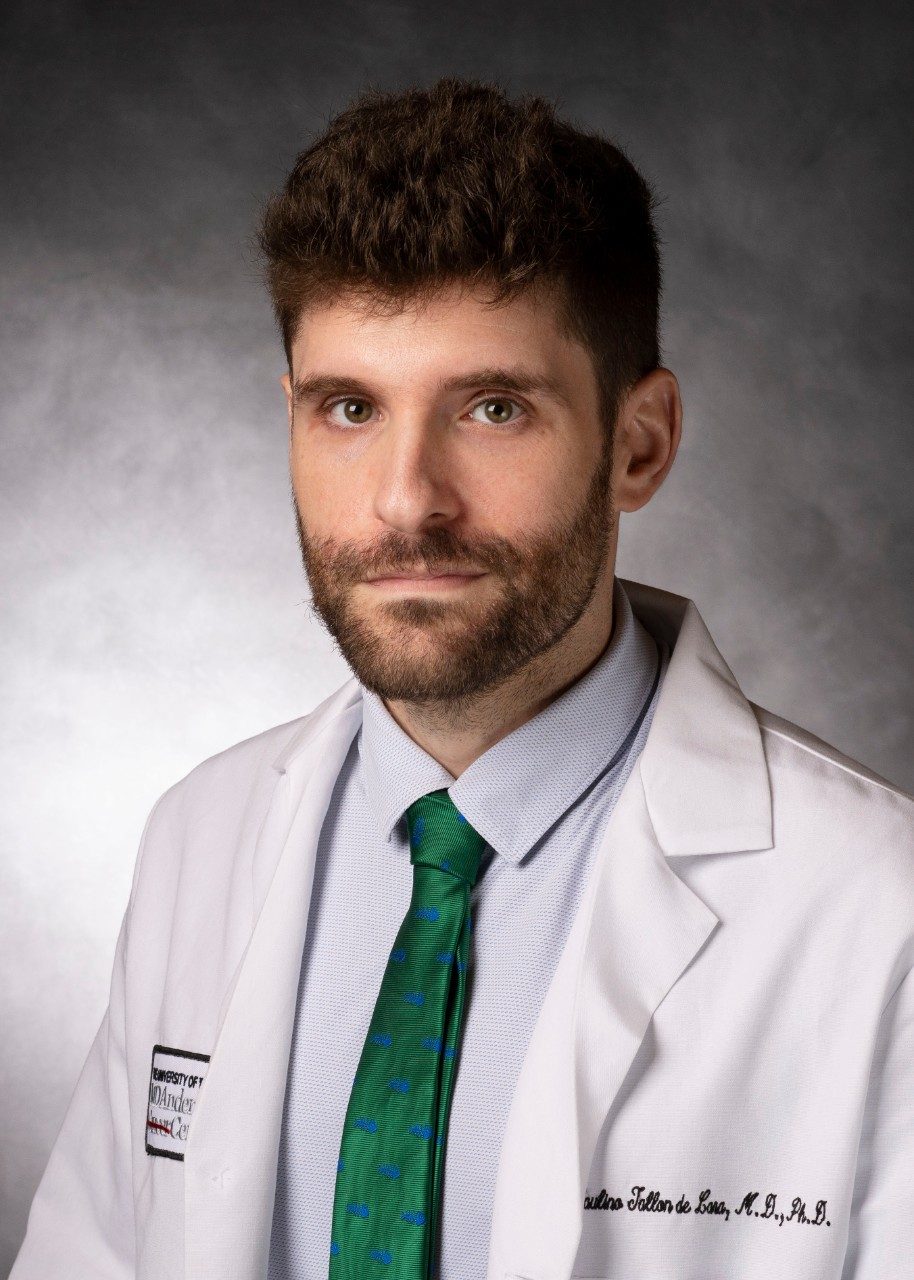
Paulino Tallón de Lara, M.D., Ph.D.
Medical School: Universidad de Córdoba
Residency: Mount Sinai West/Mount Sinai Morningside

Michael Wotman, M.D.
Medical School: Zucker School of Medicine at Hofstra/Northwell
Residency: Icahn School of Medicine at Mount Sinai
Our Alumni
2024
Bilal Anouti, M.D. - Northwestern University, Chicago, IL
Himachandana Atluri, M.D.- Northwestern University, Chicago, IL
Casey Bermack, M.D., Ph.D. - MD Anderson Cancer Center (Advanced Scholar), Houston, TX
Deepak Bhamidipati, M.D. - Sarah Cannon Research Institute, Nashville, TN
Kyle Concannon, M.D. - MD Anderson Cancer Center (Advanced Scholar), Houston, TX
Benjamin Fangman, M.D. - Mid America Cancer Care, Kansas City, Missouri
Nicholas Hornstein, M.D., Ph.D. - Northwell Health, New York, NY
Andrew Johns, M.D. - MD Anderson Cancer Center, Houston, TX
Justin Lebenthal, M.D. - New York University, New York, NY
Dustin McCurry, M.D. - MD Anderson Cancer Center (Advanced Scholar), Houston, TX
Cindy Pabon, M.D. - University of Miami, Miami, FL
Andrew Pellatt, M.D. - Intermountain Health, Salt Lake City, UT
Tin-Yun Tang, M.D. - MD Anderson Cancer Center, Houston, TX
Samuel Urrutia, M.D. - Washington University in St. Louis, St. Louis, MO
2023
Owhofasa Agbedia, M.B.B.S. - Emory University, Atlanta, GA
Ajlan Al Zaki, M.D., Ph.D. - MD Anderson Cancer Center (Advanced Scholar), Houston, TX
Amy An, M.D., M.S. - MD Anderson Cancer Center, Houston, TX
Igryl Cordero-Hernandez, M.D. - Virginia Cancer Specialist, Fairfax, VA
Madhulika Eluri, M.D. - MD Anderson Cancer Center, Houston, TX
Christopher Ferreri, M.D. - Wake Forest University School of Medicine, Winston-Salem, NC
Elshad Hasanov, M.D., Ph.D. - Ohio State, Columbus, OH
Merve Hasanov, M.D. - Ohio State, Columbus, OH
Max Gordon, M.D. - National Cancer Institute, Bethesda, MD
Jin Guo, M.D. - New York Cancer and Blood Specialists, NY
Andrew Jallouk, M.D., Ph.D. - Vanderbilt University, Nashville, TN
Darya Kizub, M.D. - MD Anderson Cancer Center, Houston, TX
Michael Nakazawa, M.D., Ph.D. - MD Anderson Cancer Center, Houston, TX
Chijioke Nze, M.D. - MD Anderson Cancer Center, Houston, TX
Anmol Singh, M.D. - Virginia Cancer Specialist, Alexandra, VA
Bingnan Zhang, M.D. - MD Anderson Cancer Center, Houston, TX
2022
Neal Akhave, M.D. - MD Anderson Cancer Center, Houston, TX
Alisha Bent, M.D. - MD Anderson Cancer Center, Houston, TX
Hua-Jay (Jeff) Cherng, M.D. - Columbia University, New York, NY
Andrew (Andy) Hahn, M.D. - MD Anderson Cancer Center, Houston, TX
Robert Hester, M.D. - Vanderbilt University, Nashville, TN
Curtis Lachowiez, M.D. - Oregon Health and Science University, Portland, OR
Patrick Reville, M.D., M.P.H. - MD Anderson Cancer Center (Advanced Scholar), Houston, TX
Kapil Saxena, M.D. - MD Anderson Cancer Center (Advanced Scholar), Houston, TX
Victoria Serpas, M.D. - MD Anderson Cancer Center, Houston, TX
Eric Singhi, M.D. - MD Anderson Cancer Center, Houston, TX
Rishi Surana, M.D., Ph.D. - Dana Farber Cancer Institute, Boston, MA
Paul Viscuse, M.D. - University of Virginia, Charlottesville, VA
2021
Hussein Abbas, M.D., Ph.D. - MD Anderson Cancer Center, Houston, TX
Nour Abuhadra, M.D. - Memorial Sloan Kettering, New York, NY
Alexander Andreev-Drakhlin, M.D. - Genentech, CA
Megan Dupuis, M.D., Ph.D. - Vanderbilt University, Nashville, TN
Benjamin Garmezy, M.D. - Sarah Cannon Research Institute at Tennessee Oncology, Nashville, TN
Jason Henry, M.D. - Sarah Cannon Denver Cancer Center, Denver, CO
Evthokia Hobbs, M.D. - Oregon Health and Science University, Portland, OR
Shalini Makawita, M.D. - Baylor College Of Medicine, Houston, TX
Joseph Moore, M.D. - Cancer Center of Kansas, Wichita, KS
Meredith Pelster, M.D. - Sarah Cannon Research Institute at Tennessee Oncology, Nashville, TN
Hind Rafei, M.D. - MD Anderson Cancer Center, Houston, TX
Bilal Siddiqui, M.D. - MD Anderson Cancer Center, Houston, TX
Demetria Smith-Graziani, M.D. - Baylor College Of Medicine, Houston, TX
Andrew Wiele, D.O. - Elmhurst Hematology Oncology Group, Elmhurst, IL
Stephanie Williams, M.D. - Kaiser Permanente, Irvine, CA
2020
Omar Alhalabi, M.D. - MD Anderson Cancer Center, Houston, TX
Kelly Chien, M.D. - MD Anderson Cancer Center, Houston, TX
Eric Fountain, M.D. - St. Luke's Hospital, Boise, ID
Haven Garber, M.D. - MD Anderson Cancer Center, Houston, TX
Joshua Gulvin, M.D. - St. Charles Health System, Bend, OR
Preetesh Jain, M.D., Ph.D. - MD Anderson Cancer Center, Houston, TX
Jade Jones, M.D. - Emory University, Atlanta, GA
Paul Lin, M.D., Ph.D. - MD Anderson Cancer Center, Houston, TX
Kaysia Ludford, M.D. - MD Anderson Cancer Center, Houston, TX
Abhishek Maiti, M.D. - MD Anderson Cancer Center, Houston, TX
Amir Mehrvarz Sarshekeh, M.D. - Everett Clinic, Everett, WA
Jonathan Mizrahi, M.D. - Ochsner Medical Center, New Orleans, LA
Jeremy Ross, M.D. - The Center for Cancer and Blood Disorders, Ft. Worth, TX
Contact Information
Contact us
Phone: 713-563-1463 Email: docmhemeoncfellowship@mdanderson.org
Division of Cancer Medicine
MD Anderson Cancer Center
1400 Holcombe Blvd., Unit 463
Houston, TX 77030
Related Resources
MD Anderson Cancer Center is committed to encouraging good health and staying true to our mission to end cancer. If you are applying for a GME fellowship or residency program starting on or after July 1, 2016, please be advised that MD Anderson will have instituted a tobacco-free hiring process as part of its efforts to achieve these goals. If you are offered an appointment, you will be subject to a Pre-Employment Drug Screen for tobacco compounds in compliance with applicable state laws. If you do not pass the urine drug screening which includes testing for tobacco compounds, you CANNOT be appointed at MD Anderson. Should you fail to meet this contingency, MD Anderson will withdraw your offer of appointment for the academic year. You may reapply for the following academic year, but there are no guarantees that you will be offered a position as many of our programs are already filled for several years out.
Our Labs
Learn more about our faculty and research taking place in our labs.
Conferences
View conferences available for continuing education credit.
